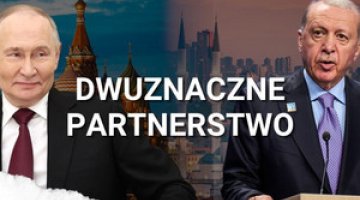Russian-Ukrainian talks in Istanbul: no progress
On 23 July, the third round of Russian-Ukrainian negotiations on ending the war took place in Istanbul (the previous meeting was on 2 June). The talks lasted only 40 minutes and were preceded by a meeting between the Turkish Foreign Minister, Hakan Fidan, and the heads of the delegations: Ukraine’s National Security and Defence Council Secretary Rustem Umerov and Putin’s adviser Vladimir Medinsky. The parties agreed on a further exchange of prisoners of war, expected to involve at least 1,200 individuals. After the exchange is carried out, both sides are expected to agree on the date of the next meeting. In addition to this, a mechanism for the ongoing exchange of severely wounded individuals directly along the front line will be implemented.
The Russian side proposed the establishment of three working groups: military, political, and humanitarian, as well as the introduction of ceasefires lasting from 24 to 48 hours to allow for the evacuation of the wounded and the collection of the dead. Moscow also offered to return the bodies of a further 3,000 fallen Ukrainian soldiers. In addition, the Russian delegates proposed including civilians in the exchange process and presented lists of individuals – Russian children and residents of Kursk Oblast allegedly abducted and/or being held by Ukrainian forces (part of this region was occupied by Ukrainian troops for nine months). Kyiv has rejected these accusations and is demanding the unconditional release of Ukrainian children and other civilians abducted by Russian forces. Ukraine also calls for the release of its soldiers who have been in captivity for over three years, prioritising younger individuals and those who are severely wounded.
The Ukrainian side once again declared its readiness for an unconditional and immediate ceasefire, particularly emphasising it would like to see a halt to attacks on critical and civilian infrastructure. It also proposed holding a meeting between the leaders of both countries by the end of August. The summit could also involve the presidents of Turkey and the United States. The Russian side, however, stated that such a meeting would only be possible after the terms of an agreement have been negotiated.
The primary audience for the talks in Istanbul was President Donald Trump. By feigning a constructive stance, the Russian side aims to prolong negotiations and seeks to shift the blame for the lack of tangible progress onto Ukraine. This strategy is intended to dissuade Trump from implementing the sanctions he has threatened. Meanwhile, the Ukrainian side is demonstrating goodwill and a commitment to fulfilling the US president’s demands for a summit and a ceasefire. Kyiv is also attempting to align itself with Trump’s ultimatum to Russia and persuade the United States to increase its support by highlighting Moscow’s unwillingness to reach a settlement. At the same time, Ukraine is focusing on the return of prisoners of war, civilians, and abducted children, this being an issue of significant importance in the Ukrainian public discourse.
Commentary
- The third round of talks revealed no changes in the Russian position. Moscow continues to treat the negotiations as a smokescreen for its ongoing offensive operations, including missile and drone strikes against civilian targets. On 15 July, President Trump issued a threat that the United States would impose potentially severe sanctions on Russia if the hostilities are not brought to an end within 50 days (see ‘Russia calmly reacts to Trump’s ultimatum on the Ukraine war’). However, this threat has not led to a reduction in the Kremlin’s maximalist conditions for ending the conflict. The Russian side appears to believe that the mere continuation of talks with Ukraine, despite the lack of progress in resolving the conflict (for which Moscow seeks to place the blame on Kyiv) will provide President Trump with sufficient justification to refrain from imposing sanctions. The Kremlin is also using the negotiations for propaganda purposes, attempting to create a false sense of symmetry between the Ukrainian children abducted and deported by Russian forces and the allegedly kidnapped Russian minors and civilians it claims are being held by Ukraine.
- By continuing talks with the Russians, the Ukrainians are not expecting a breakthrough on a ceasefire, but are instead focusing primarily on humanitarian issues. They are using the negotiations to secure the return of soldiers, civilian prisoners and deported children – efforts that are positively received by the Ukrainian public. Emphasising their readiness for an immediate ceasefire and a summit meeting is intended to highlight Kyiv’s constructive stance and demonstrate that they are aligned with President Trump’s demands (see ‘Tactical success for Kyiv: a US-Ukrainian ceasefire proposal’). By pushing for a meeting between Zelensky and Putin, Kyiv is attempting to assert its own narrative and reinforce the US ultimatum directed at Moscow. A summit between the leaders – potentially with the participation of the US president – could make clear that the Kremlin is unwilling to compromise, thus prompting the United States to increase its support for Ukraine.





